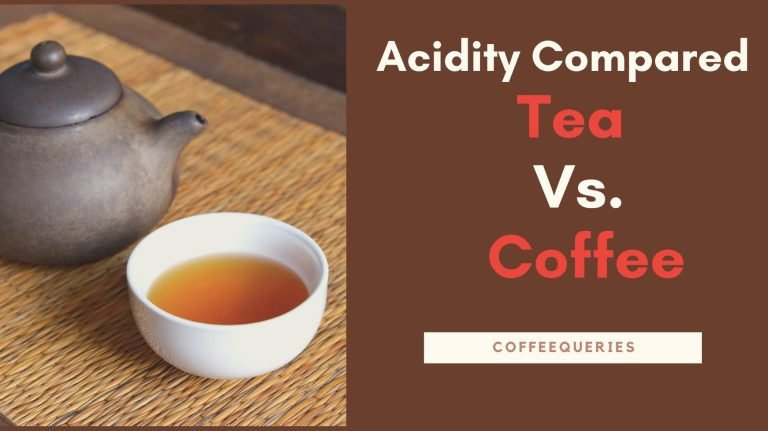Is Coffee Making You Cough? Find Out Why and How to Prevent It
Coffee Queries is reader-supported. When you buy through links on our website, we may earn an affiliate commission. Learn More
Do you wonder, “Why does coffee make me cough?”. You’re not alone; many people experience the same phenomenon and have been puzzled by this unexpected reaction to their favorite morning beverage. Whether you’re a casual coffee drinker or a full-blown caffeine enthusiast, you’ve likely experienced this at least once.
Let’s explore why coffee makes you cough, and how to solve this problem.
Does Coffee Make You Cough?
YES, it is common for coffee to induce coughing in specific individuals. Although a worsening cough is not typically associated with the health effects of caffeine in coffee, certain people may experience this symptom pretty instantly after finishing their drink or even while consuming it.
Experts at Health Digest have concluded that the occurrence of such symptoms after having coffee often depends on various factors, such as the amount of coffee consumed, medical conditions, susceptibility to allergies, and other elements.
Hence, if you are in this trouble, you should restrain your coffee consumption or seek medical advice. But first, let’s learn what causes coughing or a tickled throat after coffee.
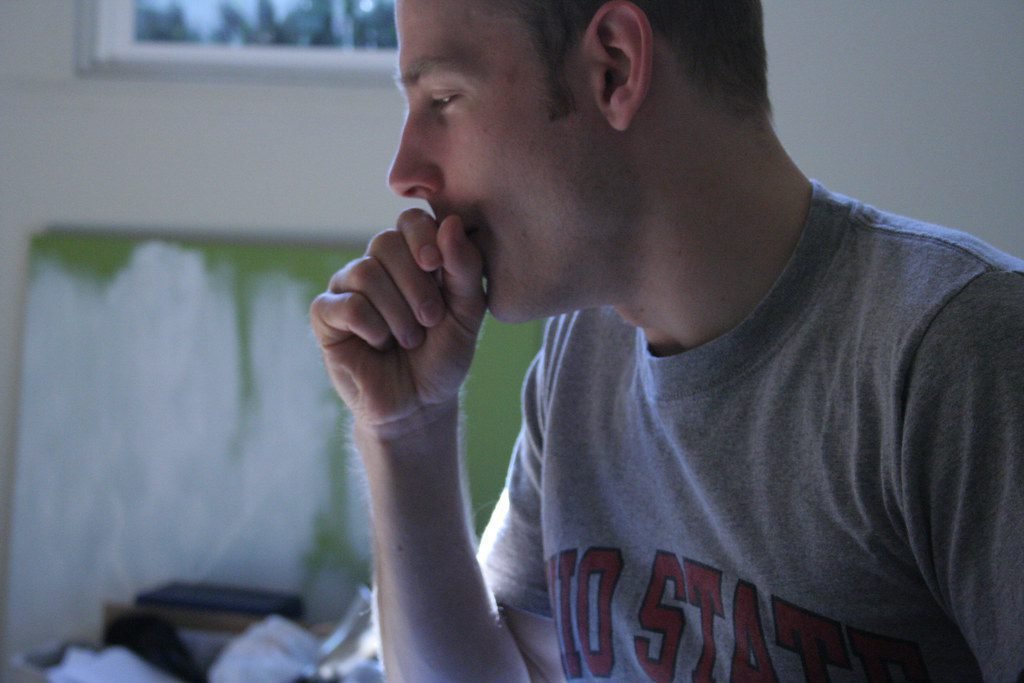
Why Does Coffee Make Me Cough: The Main Reason
Coffee enriched with caffeine provides its consumers with a sense of tranquility and comfort. Many develop a dependency on it, finding it challenging to go too long without their caffeine fix.
Coffee offers certain beneficial effects, such as boosted energy, improved alertness, better memory, and an increased ability to focus. However, it can also lead to some less desirable experiences, most commonly observed in the throat.
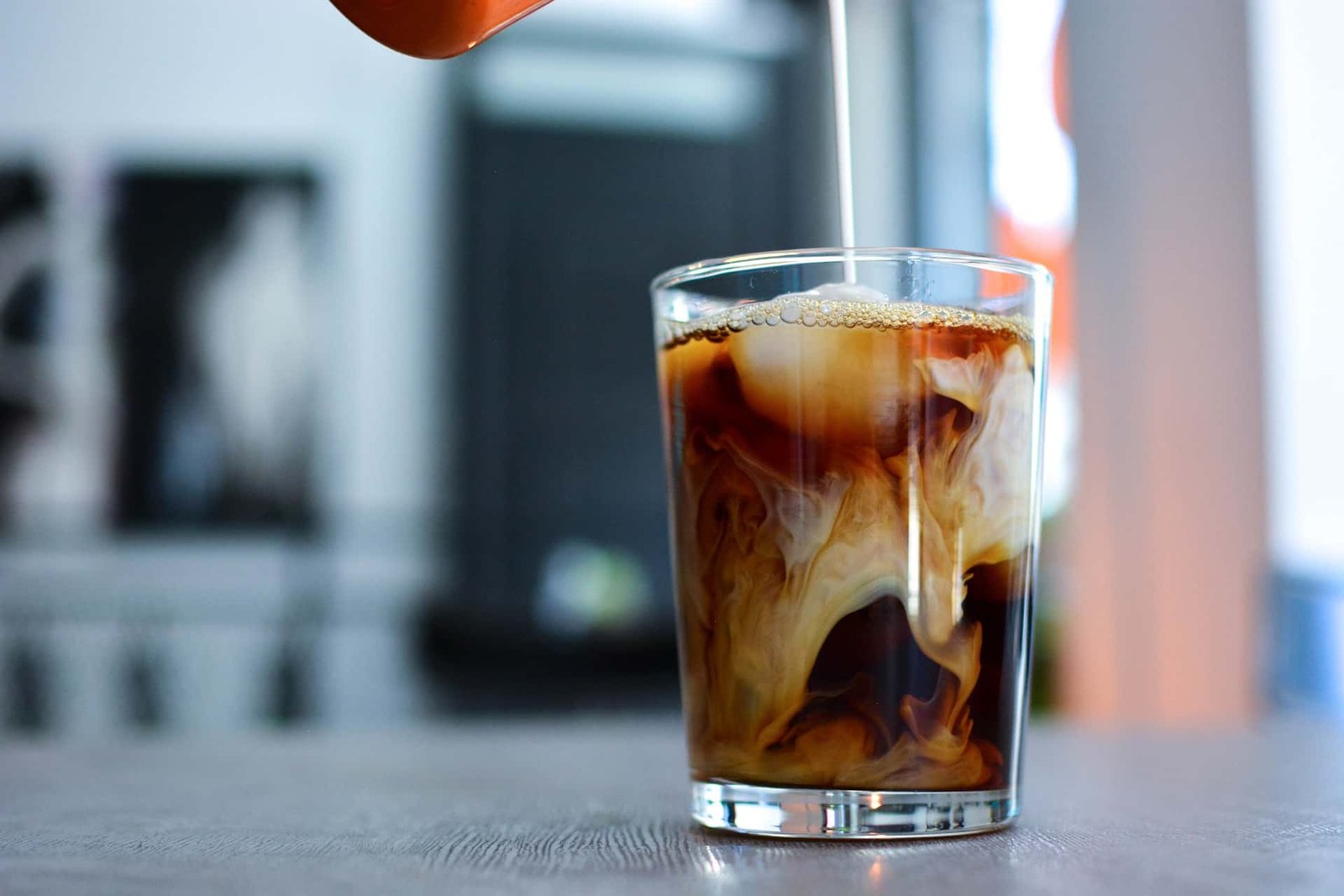
Moreover, drinking coffee can affect coughing since the caffeine in coffee can cause dehydration. It can also lead to a parched throat, which can prompt coughing or even worsen it in some individuals. However, it’s worth noting that not all coffee drinkers experience these symptoms.
Other Reasons Behind Coughing While Having Coffee
There are multiple reasons why coffee can trigger coughing, but most of them are harmless. Let’s learn about them in more detail:
1: The Caffeine Can Be The Culprit Behind Coughing
While caffeine is beloved for its ability to kick-start our lazy days, it can sometimes be a double-edged sword. When consumed in large amounts, it may lead to an irritated throat.
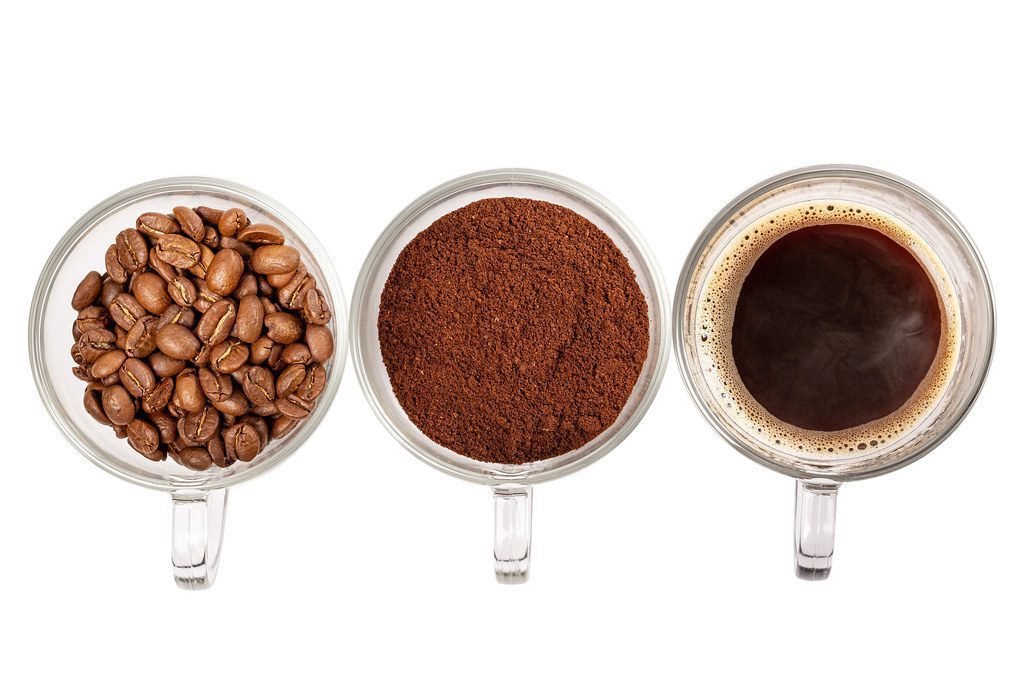
This is due to its acidic nature, which can impact the delicate lining of your throat, leading to a bothersome burning sensation or a scratchy feeling, thus causing you to cough.
Remember, the threshold at which caffeine causes discomfort varies from person to person. So, listen to your body and limit your intake if you notice any signs of throat irritation or discomfort after your coffee fix.
2: Acidic Drinks Typically Cause A Coughing Reflex In Many People
Research by Healthline highlights coffee is quite acidic, typically with a pH below 5.0. This acidity can noticeably impact the sensitive mucous membranes lining your throat and digestive system when you consume such beverages.
Imagine if you have a pre-existing condition like a dry or damaged throat, or even allergies or a viral infection. In these cases, the acidity in coffee can stir up quite a storm, leading to bouts of uncomfortable coughing.
3: Are You Sensitive To Coffee Beans?
According to research, coffee can trigger both respiratory and gastrointestinal reactions. Yes, it’s true!
For instance, If you’re allergic or sensitive to coffee beans, you might experience a dry cough or a sensation of tightness in your throat after consuming your favorite brew.
Interestingly, some people may also develop wheezing. The type of coffee bean, the roasting process, and even how the beans are ground can influence how your body reacts to your cup of Joe. For example,
- Certain elements, such as caffeine and chlorogenic acids, can trigger a coughing reaction in some people.
- The finer particles of ground coffee can also become airborne during the brewing process, potentially leading to throat irritation and coughing when inhaled.
Suggested Reading: Comparing the Most Widespread Types of Coffee: Battle of the Beans
4: Caffeine Intolerance
Caffeine intolerance, also commonly referred to as hypersensitivity to caffeine, can lead to many uncomfortable symptoms, causing coughing and irritated throat. Not only does it affect the respiratory system, but the impact can extend to your digestive system.
The initial symptom you will likely notice is solid chest congestion with heavy coughing fits. These reactions directly result from caffeine acting as a stimulant on specific parts of your respiratory tract, which may result in breathing difficulties and irritation in your lungs and throat.

However, the severity of caffeine-induced cough can vary widely. It can range from a gentle, barely noticeable cough to a severe, distracting one, all hinging on your personal sensitivity to caffeine.
For some coffee lovers, these coughing spells can last several minutes, making it tough to control without pausing caffeine consumption.
5: Post-Coffee Dehydration
Dehydration occurs when you lose more fluids than you intake, impacting your body’s ability to perform regular functions. When dehydrated, your body may try to conserve water, leading to a dryer throat.
You might be surprised that your favorite morning brew could contribute to that pesky cough. The culprit is a combination of caffeine’s stimulatory effects and its diuretic properties, which can lead to dehydration. Here’s how:
- The caffeine in coffee is a known diuretic, making you urinate more frequently.
- This increased urination can lead to a loss of fluids and dehydration if not adequately replaced.
- The dry throat from dehydration can cause irritation, triggering a cough.
While coffee isn’t the root cause of the cough, it can accentuate it due to its dehydrating effects. The drink doesn’t directly cause the cough but can make it more noticeable.
6: Did You Check The Amount Of Sugar You Add To Your Drink?
When you add sugar to your coffee, you might be unwittingly setting up a cough-triggering situation. Here’s why:

- Throat Irritation: Sugar can irritate your throat, especially if you’re already prone to coughing or have a sensitive throat.
- Dehydration: Consuming a lot of sugar can lead to dehydration, which can, in turn, cause dry mouth and throat, making you more prone to coughing.
- Acidity: Sugar can increase the acidity of your coffee, potentially exacerbating acid reflux symptoms, including coughing.
7: Cardiac Problems
Heart problems can sometimes manifest as coughing. It’s not uncommon for individuals to cough during heart attacks. Moderate caffeine consumption typically doesn’t present significant heart-related concerns for those without a diagnosed heart condition.
However, excessive coffee intake might provoke a cardiac event in those with known heart issues. It’s always best to consult a physician if in doubt or concerned.
How To Prevent Coughing From Having Coffee?
Here are some practical steps you can take to prevent uncomfortable coughing after having coffee:
- Drink water: Keep yourself hydrated. Drinking a glass of water before your coffee is always a good idea to prepare your throat and reduce the chance of a cough.
- Avoid hot coffee: Drinking your coffee too hot can irritate your throat. Try to let it cool down a bit, or opt for iced coffee instead.
Go for a smoother blend: Some coffee beans are more acidic than others, which can cause irritation. Try switching to a smoother, low-acid, and dark-roasted coffee blend. - Use natural sweeteners: Add natural sweeteners to your brew instead of sugar if your cough alleviates due to the latter. Use stevia, monk fruit, or other sweeteners to avoid coughing.
- Watch your caffeine intake: It’s worth noting that caffeine can sometimes cause a reaction in your body, leading to a cough. Try to limit your caffeine intake or go for a decaffeinated coffee.
- Check for allergies: You might be allergic to something in the coffee. Try different types of coffee to see if your cough persists. If it does, you should speak with a healthcare professional.
- For asthma patients: If coffee makes you cough and trigger your asthma, consider making some changes. Opt for low-acid coffee varieties or decaf, which contains less caffeine. Always drink coffee in moderation and avoid it on an empty stomach. If the coughing persists, seeking medical advice might be a good idea.
- For Dry cough: Keeping well-hydrated and refraining from caffeinated beverages can benefit when dealing with a dry cough. Consider using cough drops or lozenges. These little lifesavers can moisturize your throat, relieving the scratchiness, dryness, and persistent coughing urge.
Related: 8 Side Effects of Drinking Too Much Coffee
Alternatives to Coffee for Those Who Cough Easily
If coffee tends to trigger a coughing fit, don’t worry. There are multiple delicious and healthy alternatives to your morning cup of Joe. Here are some of them:

- Herbal Tea: Herbal teas like chamomile or peppermint can soothe your throat and do not contain any caffeine.
- Green Tea: It has less caffeine and is rich in antioxidants.
- Hot Lemon Water: A warm, comforting option to soothe a sore throat.
- Matcha: Matcha is a powdered green tea with less caffeine than coffee.
- Golden Milk: This combination of turmeric and warm milk is known for its anti-inflammatory properties.
Common Questions: Coffee and Cough
There are certain other questions people commonly ask concerning the subject of coughing due to coffee. Here, we address them with thorough reasoning and evidence.
Why Do I Get Phlegm When Drinking Coffee?
The mucus, produced by the mucous membranes running from the nose to the throat, acts as a lubricant and protective barrier for the respiratory system. Phlegm is a specific kind of mucus, mainly present in the respiratory tract.
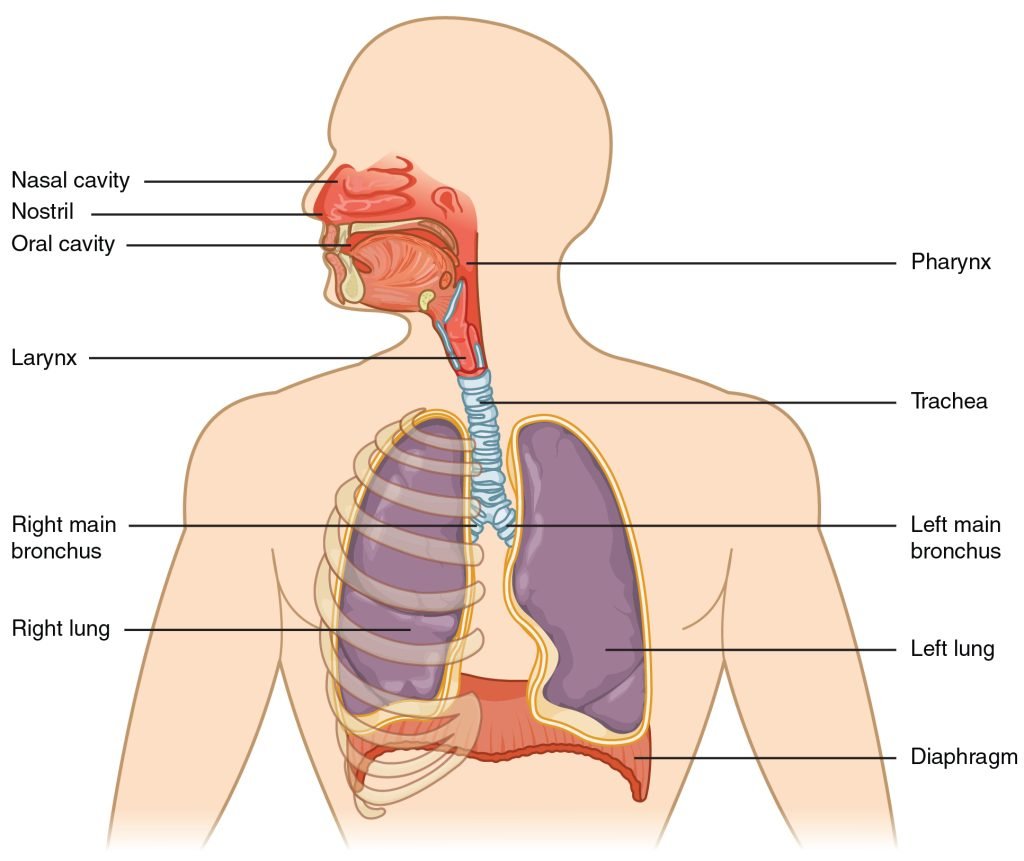
Sometimes, the body produces excessive phlegm, leading to discomfort and frequent coughing. This overproduction can be due to various factors, including lung conditions or dietary habits. Excessive phlegm can result in an itchy throat, blockage, and persistent coughing.
Specifically, caffeine in coffee has been linked to increased phlegm production. According to The Centers For Respiratory Health, caffeine can prompt the lungs to produce more and denser phlegm.
Additionally, as mentioned above, coffee can lead to rapid dehydration, producing thick mucus. This dense phlegm can obstruct the throat, causing itchiness, a persistent dry cough, and breathing difficulties.
If you notice increased phlegm after consuming coffee, reduce your intake or ensure you remain well-hydrated.
What is the Connection Between Coffee And Dry Cough?
Experiencing a dry cough can be troublesome, often leading to discomfort and an unbearable itchiness. It’s a condition that calls for rest and sound advice to conquer effectively.
Therefore, staying hydrated during a dry cough is crucial, but there are certain beverages that could aggravate the situation. Hence, you must consume your usual go-to drinks like coffee, black tea, sodas, and energy drinks, all high in caffeine, in moderation or avoid them altogether.
Interestingly, coffee falls under a category called N-methylxanthines, known to have specific effects on coughing and the cough reflex. Being a diuretic, coffee can trigger dehydration, making your dry cough even worse. Additionally, it may lead to the build-up of thick mucus within the lungs.
Can Coffee Cause Throat Clearing?
Occasionally, clearing the throat is common and can be due to a nervous habit, drawing attention, or the sensation of something being stuck in the throat.
However, constant throat clearing can be harmful in the long run, potentially damaging the vocal cords and leading to other significant medical issues.

One such condition linked to habitual throat clearing is “laryngopharyngeal reflux“. This chronic condition prompts individuals to frequently experience discomfort in the throat, leading them to clear it often.
Triggers for laryngopharyngeal reflux include the consumption of alcohol, caffeine, and foods that are fatty, spicy, or acidic. Other factors like stress and obesity can also contribute to its onset.
Excessive coffee and caffeine consumption can heighten reflux and the associated throat clearing. Given the potential for long-term harm to the vocal cords, anyone experiencing chronic throat clearing should seek medical advice.
What is the Connection between Caffeine and Asthma?
A key ingredient in coffee, caffeine, is a bronchodilator, meaning it can help open the airways in the lungs. This can be beneficial for people with asthma; caffeine has been used to treat asthma symptoms for centuries.
However, this relaxing effect might also cause a reaction that leads to coughing. The reason behind this is not entirely apparent but might be related to how caffeine affects the muscles in the airways.
Suggested Reading: Does Iced Coffee Make You Poop?
Final Thoughts
Wrapping up, it’s evident that coffee, despite being a favorite drink for many people, can lead to coughing in some due to the presence of caffeine and its acidic nature.
Acute coughs often arise from sinus infections, influenza, and the common cold. Symptoms accompanying these coughs might include sinus pressure, congestion, body aches, headaches, and fever. Typically, an acute cough doesn’t persist beyond three weeks.
Hence, consuming moderate amounts of caffeine, such as from coffee (up to 400 mg), isn’t problematic for most individuals. However, in some cases, reactions like allergies or conditions like laryngopharyngeal reflux can arise. If you notice recurring symptoms after drinking coffee, it’s advisable to consult with a doctor.
After all, enjoying coffee is about finding the right balance – the perfect brew that delights your taste buds without causing discomfort. Happy caffeinating!
Drinking coffee can induce coughing due to a variety of factors. Coffee contains caffeine, which has diuretic properties, leading to dehydration and a dry throat that could prompt coughing. Its acidic nature can also irritate the throat. Additionally, you may have a sensitivity or intolerance to caffeine or other components in coffee, exacerbating cough symptoms. Yes, caffeine in coffee has been linked to increased phlegm production. The Centers For Respiratory Health suggest that caffeine can prompt the lungs to produce more and denser phlegm. This overproduction can lead to symptoms like itchiness, persistent dry cough, and breathing difficulties. To mitigate this, consider reducing your coffee intake or staying well-hydrated. Coffee is a diuretic, which means it can lead to dehydration, making a dry cough worse. If you're experiencing a dry cough, you should either avoid caffeinated beverages like coffee or drink them in moderation. Staying hydrated is crucial when dealing with a dry cough. Constant throat clearing can be harmful in the long run and may indicate a condition called "laryngopharyngeal reflux," which can be triggered by the consumption of acidic, fatty, or spicy foods and beverages like coffee. If you're experiencing frequent throat clearing, especially after drinking coffee, it's advisable to consult with a healthcare professional for proper diagnosis and treatment.Why is Coffee Making me Cough - FAQs
Why does drinking coffee make me cough?
Is it common for coffee to cause phlegm?
Can drinking coffee make my dry cough worse?
I experience throat clearing frequently after drinking coffee. Should I be concerned?




